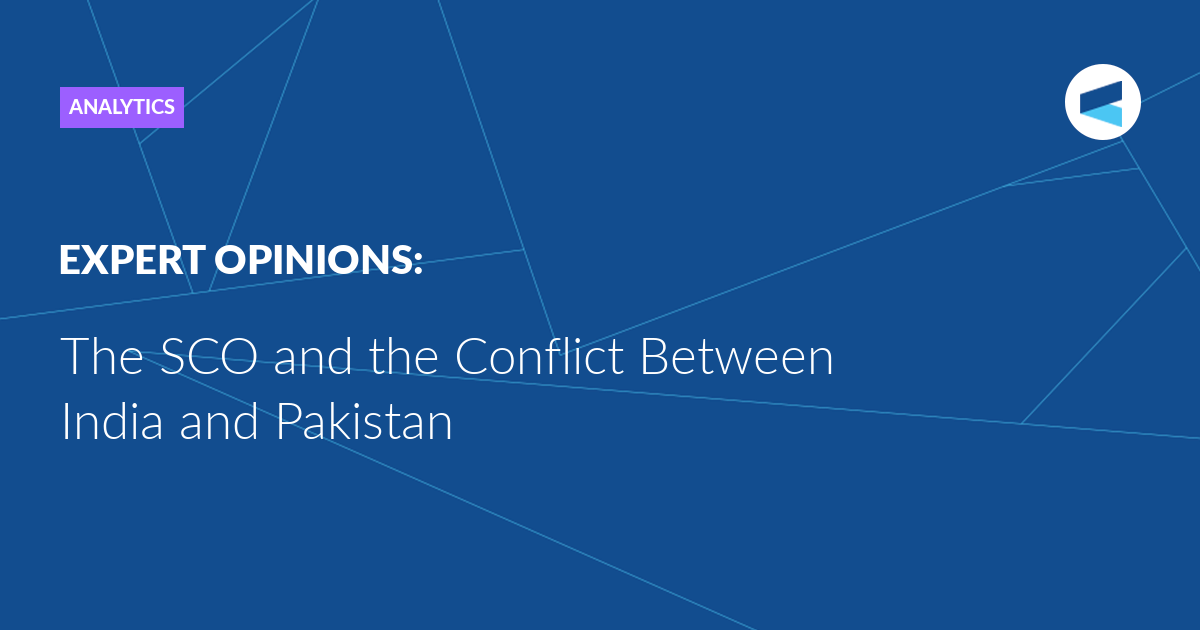
In general, the situation has worsened. When India and Pakistan were admitted to the SCO, relations between them were far from ideal, but now they even resemble a sluggish conflict. To make matters worse, there have been problems on the Indo-Chinese track. In 2018, after Narendra Modi’s visit to Wuhan to meet with President Xi Jinping, the Indian media started talking about the “Wuhan spirit” of trust in New Delhi-Beijing relations. Xi’s return visit to Mahabalipuram seemed to strengthen this mutual understanding, and a few months later, Indian Foreign Minister Subrahmanyam Jaishankar announced that India plans to resolve the long-running border problem with China in the near future for mutual benefit. But literally six months later, not a trace remained of the “Wuhan spirit”: clashes took place in Ladakh in which dozens of people were killed. Although neither India nor China is interested in further confrontation – for India, the conflict with China will mean the end of a carefully cherished strategic autonomy, for China it means the opening of a southern front, and additional forces and resources will have to be spent, diverting them from the main Pacific theatre, – they cannot retreat without losing political points.
In principle, until the last moment the situation did not look particularly critical: there still are border conflicts between countries, including the SCO countries. After all, when the organisation was just being formed, territorial disputes between China on the one hand and Tajikistan and Russia on the other, for example, had not yet been resolved; agreements were reached only a few years later. The border between Kyrgyzstan and Uzbekistan has not yet been completely delimited; there still are regular clashes. That is, the SCO, in principle, manages to function successfully despite conditions when territorial disputes persist between its members.
The problem is that the Indian leadership, after the clashes in the Galwan River Valley, radically changed its position on the settlement of the territorial conflict with China. For decades, the Indians insisted on the formula “first, the settlement of territorial disputes, then normalisation and rapprochement in other areas.” Under Rajiv Gandhi, this formula changed: Rajiv believed that before solving difficult issues, it was necessary to increase mutual trust, and as a result, the border problem was left for later. But the present Indian leadership, amid the excitement of the masses in the midst of the pandemic and the growth of patriotic sentiments, has declared that business as usual was no longer possible and returned to the old formula. If earlier India and China could conduct a full-fledged dialogue within the SCO, gradually overcoming (at least as the politicians hoped) mutual distrust, now this will have to be forgotten; this refusal of the Asian giants to engage in dialogue because of the bloodshed on the shores of the Galwan River is one of the biggest challenges for the SCO.
Organisations don’t exist on their own; they consist of participants, and their success or failure is determined by the extent to which the goals of these participants coincide, to what extent they are ready to yield, and how they build interaction with each other.
"conflict" - Google News
December 08, 2020 at 03:51PM
https://ift.tt/3qzu0EB
The SCO and the Conflict Between India and Pakistan - Valdai Discussion Club
"conflict" - Google News
https://ift.tt/3bZ36xX
https://ift.tt/3aYn0I8
Bagikan Berita Ini














0 Response to "The SCO and the Conflict Between India and Pakistan - Valdai Discussion Club"
Post a Comment